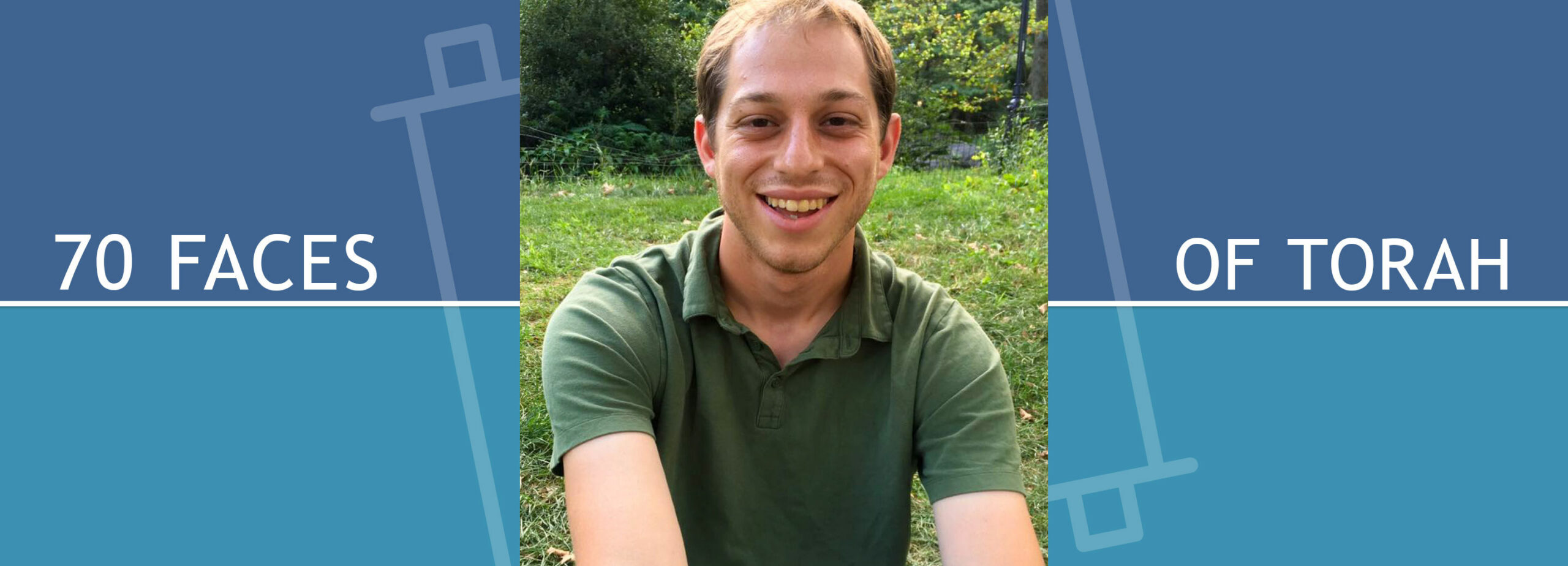Deuteronomy Coming Down from the Rooftop

Parashat Ki Tetzei (Deuteronomy 21:10-25:19)
Much can change in only one year. When we read Parasha Ki Teitzei last year, I had just, days earlier, stood under the chuppah (wedding canopy) and married my wife. It was the happiest day of my life; it was a moment overflowing with possibility. That week, a hurricane had been projected to travel up the East Coast, and yet New England was experiencing the clearest, sunniest day of the entire summer. Surrounded by friends and family, we exchanged rings and prepared spiritually to build a home of love and warmth together. We knew the path of our lives together would be unpredictable, but on that day, our world felt as clear and open as the sky above.
Speaking about this parashah in a d’var torah (short sermon) before the wedding, I lingered on a verse about building a new house:
כִּ֤י תִבְנֶה֙ בַּ֣יִת חָדָ֔שׁ וְעָשִׂ֥יתָ מַעֲקֶ֖ה לְגַגֶּ֑ךָ וְלֹֽא־תָשִׂ֤ים דָּמִים֙ בְּבֵיתֶ֔ךָ כִּֽי־יִפֹּ֥ל הַנֹּפֵ֖ל מִמֶּֽנּוּ׃
When you build a new house, you shall make a parapet for your roof, so that you do not bring bloodguilt on your house if anyone should fall from it. (Deuteronomy 22:8)
The Torah enjoins those who are constructing a new dwelling to install guardrails on the roof to ensure safety. Each of us has an obligation to partner with God to prevent the loss of life. The Talmud teaches that the one who then falls from was pre-destined to do so since the days of creation (BT Shabbat 32a). I take this to mean that there will always be people teetering on the edge whom we will not be able to protect from danger. The important question is whether we have helped to put the guardrails in place to minimize the risk.
Reading this verse right before my wedding, I understood the responsibility that I was being asked to undertake in building a “new house.” Sure, my construction skills were not great—just weeks before I had struggled mightily with a mini-wrench while attempting to assemble the pre-cut pieces of an IKEA bookshelf—but under the chuppah, my wife and I would be upgraded to expert carpenters. Not only did we have an obligation to build guardrails in our new home, but we would continue to be partners with God, doing our part to actively create a world in which more people would feel safe and welcomed.
Our first year of marriage began in perfection. We were spending equal time building our guardrails and marveling at how wonderful it was to have a loving building partner. Very quickly, however, our sense of control began to diminish. The world was shutting down rapidly. We were no longer the builders; we were the ones teetering on the unstable roof. In those moments we did not feel like God’s partners, but like bystanders of events far beyond our control. Someone commented that Coronavirus had gifted us an “extended honeymoon,” and it is true that we have loved the extra quality time together, but our desire to build a new house—for ourselves and for others—had been thwarted. We sat in our apartment constantly reminded that our parapet sat uncompleted and fragile.
Where do we go when we feel as though our tools have been taken away from us? When the path forward becomes so hazy?
Look at the next line of our text:
לֹא־תִזְרַ֥ע כַּרְמְךָ֖ כִּלְאָ֑יִם פֶּן־תִּקְדַּ֗שׁ הַֽמְלֵאָ֤ה הַזֶּ֙רַע֙ אֲשֶׁ֣ר תִּזְרָ֔ע וּתְבוּאַ֖ת הַכָּֽרֶם׃
You shall not sow your vineyard with a second kind of seed, else the crop—from the seed you have sown—and the yield of the vineyard may not be used (Deuteronomy 22:9).
Torah commentators are fixated on why different mitzvot are listed side by side in the Torah—how commandments demanding action are followed by commandments requiring restraint, assuming there must be some connection between adjacent commands. In commenting on this line, the French medieval commentator Hezekiah ben Menoah, known as Chizkuni, suggests that in planting “a second kind of seed,” a person might inadvertently create a new species that is counter to the way that God created a world. Individuals have a role in creating a safe and inclusive world, but they must also have an learn to lean into the mystery of the world.
This year, the Torah is asking me to lean into that mystery—to put my tools back in the box and to gaze out on the rows of seeds that are slowly beginning to sprout. For my wife and me, this might mean refocusing our attention from the future to the present, finding even small moments in which to acknowledge the wonder that is all around us.
As we enter the High Holiday season in quarantine, we are called to embrace the mystery of this moment, taking time to celebrate all that we have and mourning the losses. This is a time to come down off the roof and follow in the footsteps of our ancestor Isaac, who modeled for us how to meditate in and on the physical world around us. (see Genesis 24:63) Soon enough, we will be asked to get back on the roof and build our guardrails. In the meantime, let us take the time to be present to the world as it is and prepare our toolboxes.
Tyler Dratch is a rabbinical student at Hebrew College in Newton, Mass.

